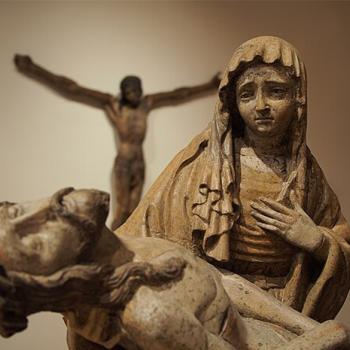Isaiah 60:19-20 is a Celtic knot of a text. The obvious structure is a parallelism:\ A. No longer sun for light B. Nor moon for brightness C. Yahweh will be everlasting light D. Your God for your beauty A’. Your sun will not set any more B’. Nor will the moon wane C’. For Yahweh will be everlasting light D’. And your mourning will be completed (shelem) Over top of this parallelism are several chiastic whirls: (more…) Read more



















